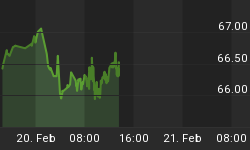A major determinant for U.S. GDP growth is the state of the real estate sector. The construction of new homes contains only small section of the total picture. New appliance purchases and home furnishings go hand in hand with all the ancillary employment surrounding the housing market. Real Estate brokers, banking and legal functions are all necessary to support the buying and selling of new and existing houses. Most importantly, rising real estate prices increase the net worth of consumers, which in turn boosts credit creation, consumption and economic activity. These points were overlooked back in 2007; and the major reason why nearly everyone on Wall Street and in Washington was blindsided by from the fallout of collapsing real estate prices.
The real estate debacle was the cause of the Great Recession and it is also now being credited for bringing it to an end. But the lynchpin behind this economic recovery has been the government's ability to increase home prices through the process of artificially creating record-low interest rates and by having the Fed purchase impaired loans from banks' balance sheets.
However, this ersatz and temporary recovery is now running into trouble.
The affordability of homes once caused by plunging prices and record low borrowing costs caused investors to flock into the housing sector. According to the Case-Shiller Home Price Index, real estate prices dropped 35% from peak to trough. Speculators scooped up foreclosed properties that were being dumped on the market without much regard to price. Private Equity firms and hedge funds purchased properties mostly with cash; and whatever extra money they desired to borrow came nearly for free.
Those days have now past.
Home prices had been plummeting up until 2009, but then started to stabilize during 2010. However, now they have returned to their growth rates experienced during the bubble era of 2000-2006. The National Association of Realtors reported that median existing home prices increased 13.5% from June of last year. What's more, formerly plunging bond yields have also started to increase. Freddie Mac reported that rates on thirty-year fixed mortgages have soared nearly 35% since early May. Perhaps this is why the NAR reported last week that investor purchases made up only 15% of June sales, which is the lowest percentage since the realty association began tracking the data in 2008.
Investors are now saturated with foreclosed properties and much of the easy money has been made. So it is up to first-time home buyers to take up the slack. However, with real median incomes rising just 1.1% YOY (far below the increase in home prices) there isn't much hope for individual consumers to supplant the hedge fund community...especially since first-time home buyers cannot pay cash and will be required to meet the now tightened lending standards of banks.
What's more, a recent report from the Special Inspector General of the Troubled Asset Relief Program indicated that 46% of distressed home owners that received loan modifications from the government during 2009 had re-defaulted. Therefore, expect hundreds of thousands of foreclosed properties to hit the market in the near future. Perhaps the increased inventory and rising mortgage rates will bring down prices and eventually cause speculators to jump back into the picture. Nevertheless, this probably won't occur until property values decline significantly first.
Evidence of this slowdown can already be found in the earnings reports of major home builders. PulteGroup reported that rising borrowing cost have already started to hurt sales. The largest U.S. home builder by market value reported that orders decreased 12% for the second quarter.
Back in 2009, plunging mortgage rates and home prices allowed the real estate market to bottom. In contrast, we now have rising borrowing costs, soaring homing prices and little income growth. Those factors are all working against the affordability of real estate.
It is also important to understand that rising interest rates are not affiliated with a surge in economic growth. The Bernanke Fed has recently indicated that a reduction in MBS and Treasury purchases may occur in the next few months, causing investors to fear the eventual removal of the Fed's bid on fixed income. If such tapering occurs, the rate on the thirty-year fixed mortgage could go north of 6% in very short order.
Soaring mortgage rates will cause the housing market to undergo another leg down. Of course, the economy will go along for the ride and a severe recession will ensue. Once the Fed realizes how addicted the real estate market and the economy are to artificially-low interest rates, it will end the tapering of QE and dramatically increase the allotment of monthly purchase. I expect a significant increase in hard assets and a protracted bull market in PMs after the central bank makes the proclamation that the size of its balance sheet is without limit.
















